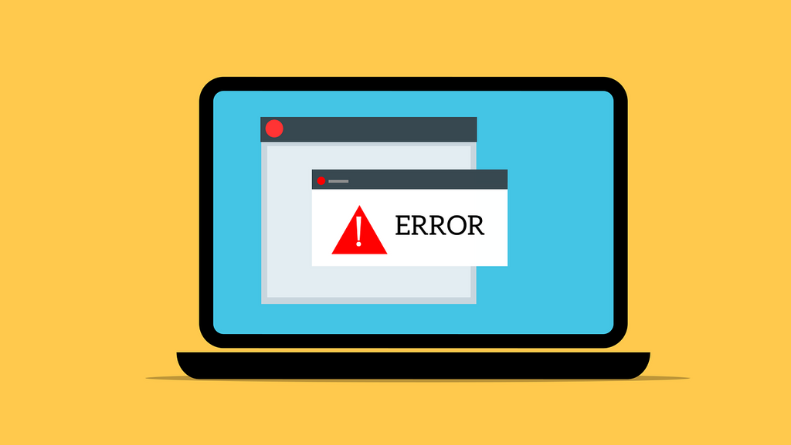Avoid These Mortgage Application Blunders
Buying a home can be a stressful and anxious time as you worry about what could go wrong to derail the purchase. This is especially so for first-time buyers who are unfamiliar with the mortgage application process and the blunders that many make. Below are the more common mistakes to be aware of so you are not one of them.
Be realistic about the mortgage you will get
Many mortgages necessitate that you fall within these requirements:
- Have a large enough deposit saved up.
- You must have a good credit rating.
- You must meet the maximum age requirements.
- Make sure that you satisfy other requirements, such as earning enough income.
Trying to secure a mortgage that you don’t qualify for slows the purchasing process and may cause the deal to fail. If you paid an application fee, you’re unlikely to receive it back.
It’s also important to note that mortgage rejection can damage your credit history and make it more difficult for you to secure another loan in the future.
Not being totally upfront
You may be tempted to think that certain little lies will help your application process, but you will be wrong. Be totally upfront and honest about:
- Don’t claim to have a larger deposit than you actually have.
- Don’t say you earn more than you do.
- If you don’t have a full-time job, then be honest about it.
- Don’t say you are going to live in the house when you have intensions of renting it out.
Don’t get caught out lying because lenders will likely want proof of some of the information on application forms. If they find out you lied on your application, they might turn it down and maybe even charge you with fraud.
Being wrong about your income
If your application contains incorrect information about what you earn, there could be consequences, such as:
- If you claim you earn more than you do, your application may be rejected. Remember, the lender will want proof of this and will make the necessary checks to confirm it.
- If you state on your application that you earn less than you do by mistake, the lender may assume that you are unable to afford the property and you could miss out.
You should know exactly how much money you make before applying for a mortgage. If you get any additional compensation, such as commissions or bonuses, you should record these separately from your base income.

When they ask about your salary, make sure you know whether they are asking for a monthly or annual salary. You don’t want to enter a £2,500 monthly salary when they are asking for an annual salary!
Making a mistake about the number of kids you have
The cost of raising children is taken into account when lenders determine whether a borrower can afford a mortgage. If it seems like you have a large family, your income will have to be able to cover living expenses to secure a mortgage.
Even if you’re filling out your mortgage application online, your browser’s autocomplete tool may be able to get the information incorrect. Check all of the information you enter carefully.
Skipping on details
Make sure that you don’t miss out on any details on your application form, as this could cause a delay or perhaps lead to rejection. For example, you must include the following details:
- Any other extra income, like from a second job (this would help your application)
- Make sure you supply your old address if you have moved within the last 3 years
- If you have any childcare payments to make on a regular basis
- How did you get the deposit (savings? a gift? etc.) This is required for money laundering purposes.
Before submitting your application, ask a friend, family member, or your lawyer to review it for any problems or omissions.
A mortgage broker, if you are using one, should examine your application for you to make sure that everything is proper before you submit it to a bank or lender.
Forgetting mortgage fees
Most of the time, even the mortgages with the lowest rates require an application fee.
These fees can run into the thousands of pounds, but they can save you money on your mortgage.
The total cost of a mortgage over the long term may be determined by calculating the monthly payments and fees for each mortgage. As a result of this, you won’t end up applying for a mortgage that is more expensive than you expected.
Failing to save enough to cover other costs
Don’t forget that there will be other costs you will have to save for, and these include things like stamp duty, solicitor’s fees, and moving costs. Making sure you have saved adequately will help you avoid falling into debt or having to borrow.
Allowing your offer period to expire
You need to be aware that mortgage offers have an expiry date attached to them, so you have a limited time in which to act on them. In particular, check to see when the following expires:
- Mortgage in principle: This sets out how much the lender is willing to lend you in theory and tends to last between 30 days and 6 months. In order to find a suitable home, put in an offer and reach a final price agreement, make sure you have enough time to do so.
- Full mortgage offer: This will typically last for about 6 months.
Take careful note of when your various offers end so you can use them as a guide in the application process. However, you may need to ask your lender for extra time in certain circumstances, which could come as either an extension or renewed offer.
Making significant changes in lifestyle and spending
It is possible to make small changes such as your name or address during the home buying process. However, because your lender may need to amend your information, the application process may be delayed.
Changing jobs, on the other hand, might be problematic, particularly if your new salary is lower. When you change jobs, here’s what happens to your loan application.
Using a credit card, overdraft, or loan to apply for a loan might also hurt your prospects.
On your credit report, you may see this: If you borrow more money at the same time you apply for a mortgage, the lender may worry about your ability to pay it back.
ARE YOU READY TO START INVESTING?
Subscribe to our mailing list now for exclusive deals, investment guides and the latest information from the property market.






